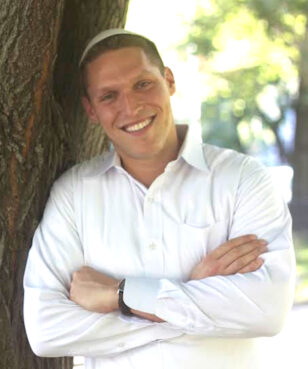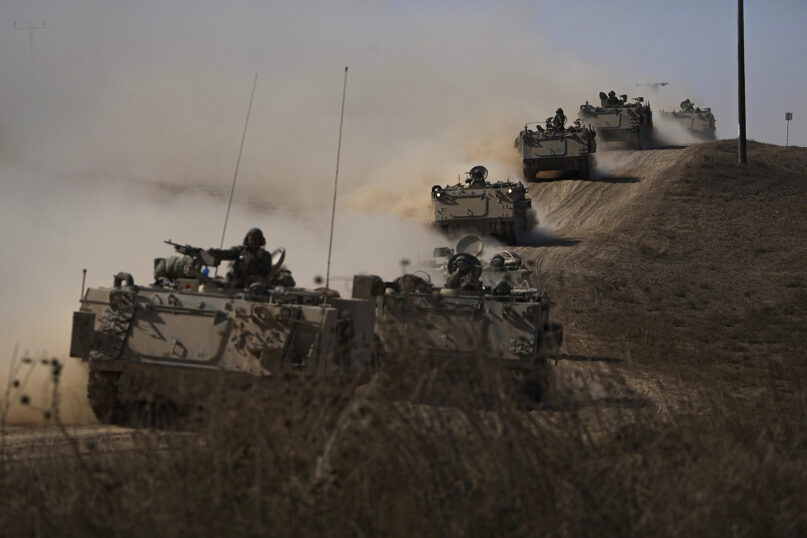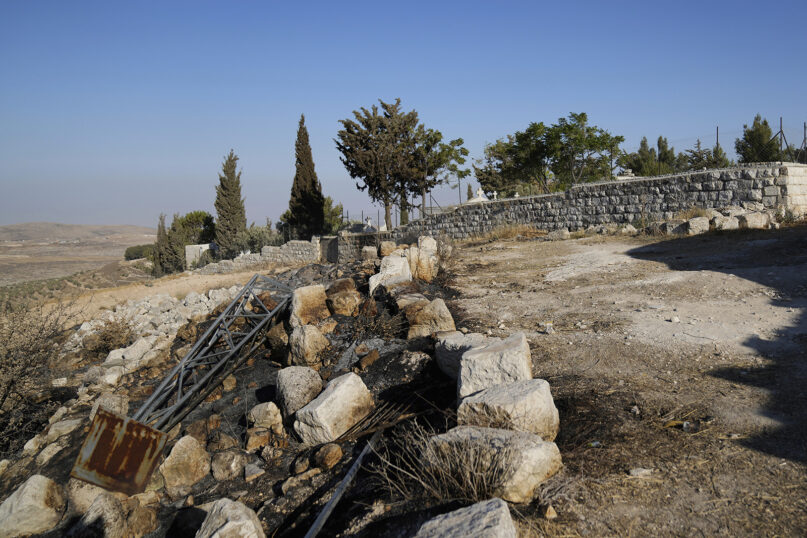(RNS) — When Reform and Conservative rabbis issue a statement that raises concerns about how Israel is waging war in Gaza, many Jews expect that.
When Orthodox rabbis issue a similar statement, that is something entirely different. And it’s why our collective ears perked up this past week — when more than 80 Orthodox rabbis from across the world signed the declaration, “A Call for Moral Clarity, Responsibility, and a Jewish Orthodox Response in the Face of the Gaza Humanitarian Crisis.”
These are major rabbinic voices. The list includes four chief rabbis: Rabbi Michael Schudrich (Poland), Rabbi Michael Melchior (Norway), Rabbi Jair Melchior (Denmark) and Rabbi David Rosen (the former chief rabbi of Ireland).
Some of the Orthodox rabbis who signed are my friends, teachers and mentors, including Rabbi Yitz Greenberg; Rabbi Donniel Hartman; and Rabbi Shmuly Yanklowitz, who helped coordinate the statement.
It is worth lingering on both the chutzpah and the humility of this document.
The chutzpah (or audacity): that Orthodox rabbis would publicly rebuke the government of Israel. The humility: that they ground their protest not in partisan politics, but in Torah, and, as they put it, “in our deepest Jewish values and informed by our traumatic history of persecution.”
The statement is clear, and it begins with unquestioned moral clarity: Hamas is guilty of heinous crimes.
Nothing in the rabbis’ words erases that truth. But those rabbis also insist the sins of Hamas do not cancel out Israel’s obligations.
“We affirm that Hamas’s sins and crimes do not relieve the government of Israel of its obligations to make whatever efforts are necessary to prevent mass starvation,” the rabbis write.
Rabbi Michael Melchior said, “I am advocating for Israel to flood Gaza with food and medicine which is from a Jewish view the right thing to do and at the same time no one would be able to profit from the sale.”
Who do many of these signatories have in common?
They are the students of, or the spiritual students of, one man — Rabbi Joseph Soloveitchik, the preeminent modern Orthodox theologian, affectionately known as simply “the Rav.”
In a 1959 lecture (“Religious Definitions of Man and His Social Institutions, Part 3”), the Rav warned: “Now, with the state of Israel, we are facing the test. Will we behave like any state, ethically? … Will we act like masters — or will we understand that Judaism does not know the concept of master and slave, victor and vanquished?”

Rabbi Shmuly Yanklowitz. (Photo by Fropals1/Wikipedia/Creative Commons)
That challenge resounds even louder today.
Israel’s military victory or survival is certainly crucial. Every single rabbi who signed that statement would affirm that.
But, there is something else that is crucial — Israel’s moral credibility. That credibility carries with it, by extension, the credibility of Judaism itself. As Rabbi Shmuly Yanklowitz put it, “The goal of Israel is not only to survive, but to thrive in Torah and flourish morally and spiritually.”
The rabbinical statement comes with risks — in the form of imagined and real questions that are both pointed and loud:
Why should Orthodox rabbis speak about food aid when Hamas is still holding hostages? When Israeli parents still sit shiva for their murdered children?
Every single rabbi on that list feels that pain intrinsically. Some of them have personally suffered because of this war.
But, they also know the Jewish tradition demands we sense the pain of a people with whom we are at war.
Rabbi Yitz Greenberg put it succinctly: “The heart of Torah is justice, not revenge.”
The Jewish heart is large enough to contain the outrage at the way our enemies have treated us and the belief that the innocent should not suffer.
Why should Jews keep on speaking out about this? This moral scrutiny stuff is getting pretty wearisome.

FILE – Israeli tanks head toward the Gaza Strip border in southern Israel on Oct. 13, 2023. (AP Photo/Ariel Schalit)
Ask Abraham and Moses, if you could, and they will tell you moral scrutiny comes with the territory. Go to any synagogue on a Shabbat morning and listen to the haftarah (the prophetic reading). You want moral scrutiny and critique of people, priests and princes? Isaiah, Amos, Jeremiah – it’s all there. To be a Jew is to believe love and critique are not antagonists. They walk hand in hand.
True, contemporary Jewish sages are not prophets in the narrowest theological sense (God has not spoken to them — at least, as far as we know). Also true, some of this posturing can devolve into performative virtue signaling.
And yet we chant the words of the prophets in synagogue for a reason — to keep us morally honest.
Don’t those rabbis realize we have enemies? Enemies that might use the rabbis’ dissent to delegitimize the Jewish state itself?
All of these rabbis know, and have taught, the Jewish ethics of speech, especially tochecha, the necessity, and the ethics, of reproof.
As Rabbi Yosef Blau, the former president of the Religious Zionists of America and spiritual advisor at Yeshiva University, stated: “My support of Israel and Zionism stems from my commitment to Judaism. A non-critical loyalty is contradictory to the introspection fundamental to Judaism. When religion is used to justify a worship of power, it distorts basic morality.”
And, do we really think if we are silent that our enemies will be equally silent? That they will reward our silence with their own?
It does not work that way — and, in fact, it has not.
But, there is more.

Char marks, which Palestinians say are from an attack by Israeli settlers, are visible in the cemetery near the St. George Greek Orthodox Church in the West Bank village of Taybeh, July 14, 2025. (AP Photo/Nasser Nasser)
This rabbinic statement also dares to confront another painful truth: extremist settler violence in the West Bank.
The rabbis do not mince words: “Extremist settler violence has resulted in the murder of civilians and has forced Palestinian villagers from their homes, further destabilizing the region.” It is hard to imagine such a sentence emerging from the mouths of many current Israeli officials, some of whom are themselves sympathetic to or complicit in those extremist currents.
Why does this matter as much as it does?
Because the rabbis who signed this statement have done something profoundly Jewish. They have reminded us that strength without compassion is not a Jewish version of strength. That victory without justice is not how Jews view victory. That loyalty without critique is not how Jews assess loyalty.
This statement was not born out of critique, nor out of a need to wag our fingers. Rather, this statement was born out of love, and out of a need to wring our hands. That is how Jews should critique Israel: with love and hand-wringing.
These days, there is a lot of hand-wringing.
Let there be a lot of love to match it.



